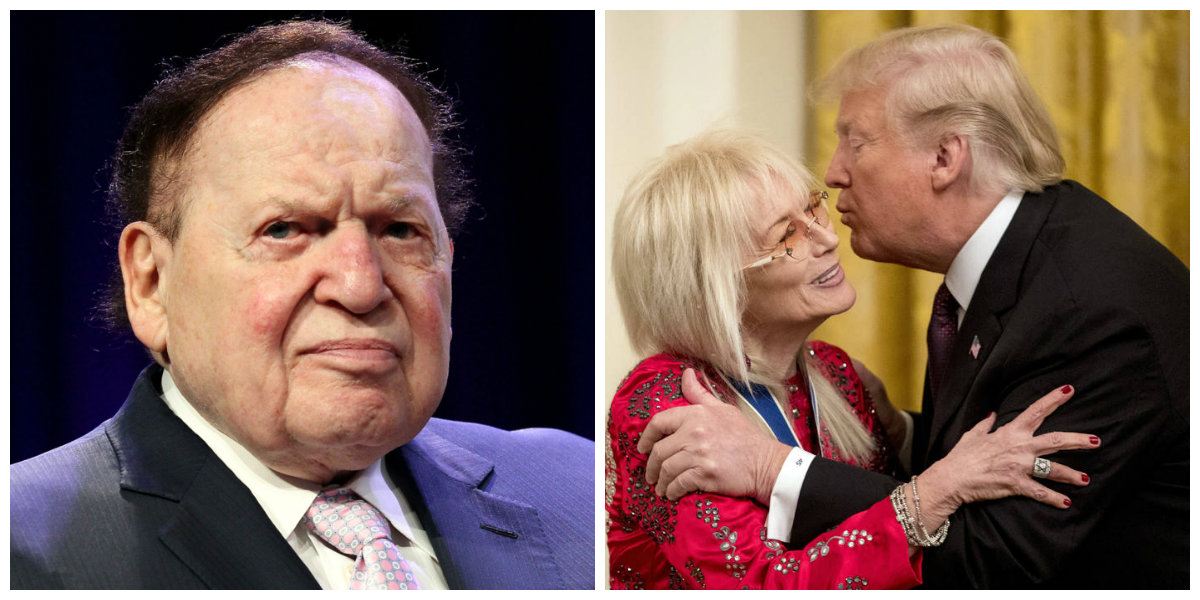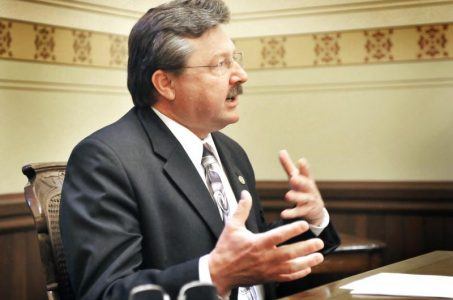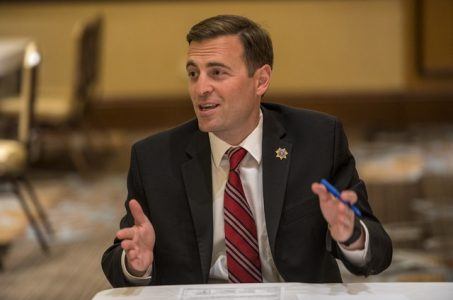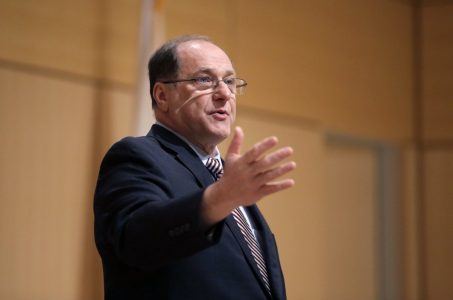Potential DOJ Wire Act Reversal Decision Looms, Is Adelson Power Behind the Throne?
Posted on: December 19, 2018, 11:01h.
Last updated on: December 19, 2018, 05:54h.
It’s like 2011 deja vu, but in reverse: the Wire Act is once more under threat of reinterpretation, an action that could put legal US online gaming in jeopardy. According to industry ear-to-the-ground source Online Poker Report (OPR) — which was vague about where the rumors have emerged from — the reversal opinion could be handed down before week’s end.

Muscle Man
It’s implied that the seemingly sudden move could be at the behest of GOP megadonor and Las Vegas Sands CEO Sheldon Adelson, whose massive midterm election support of Republican candidates — including anti-online gaming gubernatorial candidate Adam Laxalt, whose bid failed — was largely a bust.
One of Trump’s key money men in his presidential run in 2016, Adelson would seem to have some sway and perhaps feels such a move is owed him after all he has done for the party. Adelson has always been staunchly against internet gambling, although he is the only industry kingpin to take such a stand.
He’s referred to potential problems with underage gambling as one reason he is pushing back against legalized online gaming in the US.
States vs Feds: Potential Loggerheads?
While the OPR story leaves details on the murky side, if such a decision does come down, it could potentially put states with legal online gambling — currently Nevada, New Jersey, Delaware, and Pennsylvania — in direct conflict with the federal government, much as the marijuana industry has faced.
But for now, it’s all a maybe/could be/might be kind of situation. That being said, it’s eerily reminiscent of the 2011 decision’s timing, which became public on Christmas Eve, leaving many legislators angry at not having any input.
Down to the Wire Act
The Federal Wire Act, first created in 1961, was originally designed to make it a criminal offense to use wire transmissions to send interstate or foreign bets or wagers, or any information that would help someone else in doing so. It called for punishment in the form of fines or up to two years in prison for violations.
The Department of Justice issued an opinion in late 2011, in which it determined that only sports betting fell within the purview of the Wire Act, meaning that US states could freely explore the possibility of legalizing online gaming within their borders if they so chose.
Because it was merely an opinion and not actual legislation, many in Congress rebuked the decision, in which they had had no involvement. Controversy continues over the meaning of the Act — which was, of course, created long before even the thought of an internet existed — and with the SCOTUS overturn of PASPA in May of this year, many states have now pursued sports betting legally, even though the Wire Act decision of 2011 remains in place for now.
This is a developing story, we will continue to monitor and update it.
Related News Articles
Most Popular
Mirage Las Vegas Demolition to Start Next Week, Atrium a Goner
Where All the Mirage Relics Will Go
Most Commented
-
Bally’s Facing Five Months of Daily Demolition for Chicago Casino
— June 18, 2024 — 12 Comments
















No comments yet